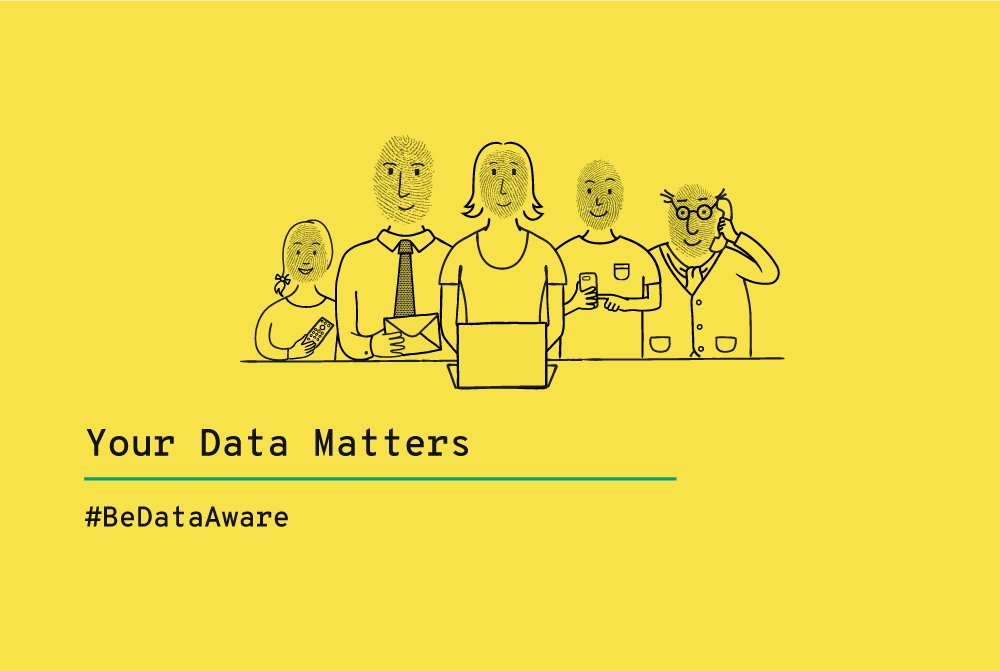

As the Information Commissioners Office’s ongoing investigation into the political weaponisation of data analytics and harvesting sheds more and more light on the reckless use of ‘algorithms, analysis, data matching and profiling’ involving personal information, consumers are becoming more data conscious. The ICO, as of 8th May, has launched an awareness campaign, featuring a video, legal factsheets reminding citizens of their rights under GDPR, and advice guidelines on internet behaviour. Currently the campaign is floating on Twitter under #BeDataAware.
80% of respondents considered cyber security to be a ‘high priority’
While the public is broadly aware of targeted marketing, and fairly accustomed to the process of companies attempting to reach certain demographics, the political manipulation of data is considered, if not a novel threat, then a problem compounded by the new frontier of online data analytics. Ipsos MORI’s UK Cyber Survey conducted on behalf of the DCMS found that 80% of respondents considered cyber security to be a ‘high priority,’ but that many of these people would not be in groups likely to take much action to prevent cybercrime personally. What this could indicate is that while consumers may be concerned about cybercrime being used against themselves, they are also aware of broader social, economic and political dangers that the inappropriate or illegal use of personal information poses.
ICO’s video titled ‘Your Data Matters,’ asks at the beginning, “When you search for a holiday, do you notice online adverts become much more specific?” Proceeding to graphics detailing this relatively well-known phenomenon, the video then draws a parallel with political targeting: “Did you know political campaigners use these same targeting techniques, personalising their campaign messaging to you, trying to influence your vote?” Importantly, the video concludes, “You have the right to know who is targeting you and how your data is used.”
To take a major example of an organisation trying to facilitate this right, Facebook allows users to see why they may have been targeted by an advert with a clickable, dropdown option called ‘Why am I seeing this?’ Typically, the answer will read ‘[Company] is trying to reach [gender] between the ages X – Y in [Country].’ But the question remains as to whether this will be sufficiently detailed in the future. With growing pressure on organisations to pursue best practice when it comes to data security, and with the public’s growing perception of the political ramifications of data security policies, will consumers and concerned parties demand more information on, for instance, which of their online behaviours have caused them to be targeted?
A statement from the Information Commissioner Elizabeth Denham as part of the Be Data Aware campaign has placed the ICO’s data security purview firmly in the context of upholding democratic values.
“Our goal is to effect change and ensure confidence in our democratic system. And that can only happen if people are fully aware of how organisations are using their data, particularly if it happens behind the scenes.
“New technologies and data analytics provide persuasive tools that allow campaigners to connect with voters and target messages directly at them based on their likes, swipes and posts. But this cannot be at the expense of transparency, fairness and compliance with the law.”
Uproar surrounding the data analytics scandal, epitomised by Cambridge Analytica’s data breach beginning in 2014, highlights the public’s increasing impatience with the reckless use of data. The politicisation of cybercrime, and greater knowledge and understanding of data misuse, means that consumers will be far less forgiving of companies that are not seen to be taking information security seriously.
Harry Smithson, 9 May 2019

